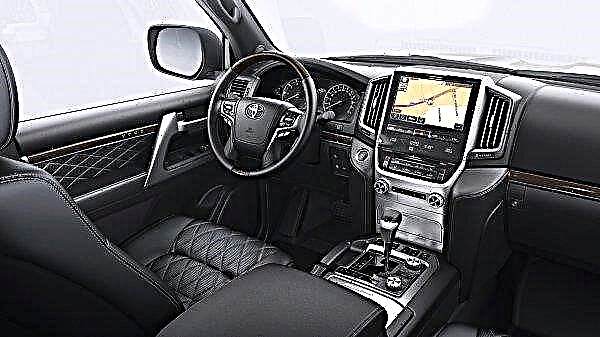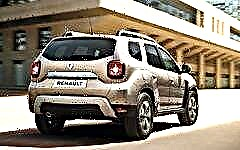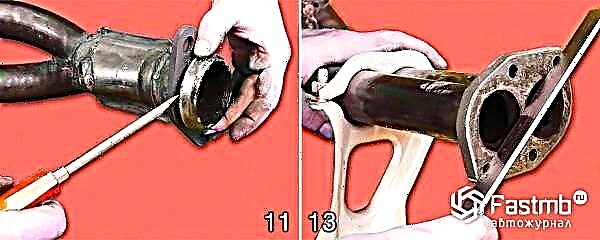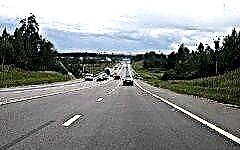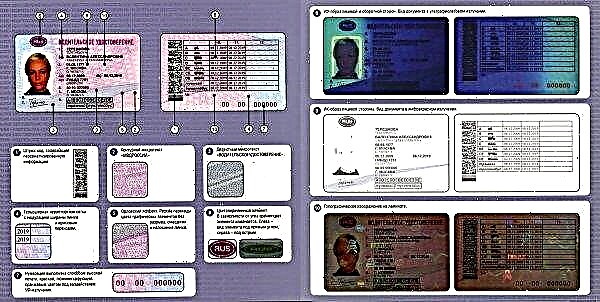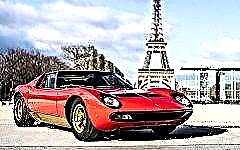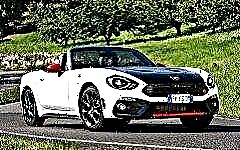

The content of the article:
- Empty gas tank
- Driving negligence
- Cold engine
- Daily wash
- Using the hand brake
- Downhill "coasting"
- Incorrect handling of a turbocharged engine
- Prolonged squeezing of the clutch
- Carelessly inflated tires
- Car overload
Poor-quality fuel, broken roads, aggressive reagents in winter - all these factors certainly do not prolong the life of a car. But in addition to the circumstances that are difficult and long to deal with, there are also seemingly harmless driving habits, which, in fact, turn out to be not so harmless for the state of the car and the car owner's wallet.
It may seem incredible, but the driver's bad habits often cost the car more than all the pits and low-quality fuel combined.
Empty gas tank

"Tomorrow, tomorrow, not today - so lazy people say." This line was not born out of nowhere. Well, we like to postpone seemingly simple things "for later". So car owners drive on a half-empty gas tank, remembering only when the car starts to go, as they say, "in pairs."
It is often possible to hear from drivers that there is an “alarm light” in the car, signaling the driver about a low fuel level - when it lights up, then you can think about refueling. After all, there is still no rule that prohibits driving on an empty tank - so why bother unnecessarily?
In fact, the situation looks somewhat different.
The first reason why driving with a small amount of fuel is undesirable is usually called the harmful effect of fuel impurities on the fuel pump, fuel filter and the entire fuel line.
In fairness, it is worth noting that impurities threaten these automotive components even with a full tank: the car is moving, the fuel is agitated, impurities can be found anywhere in the gas tank. This is true, but in a smaller volume of fuel, more impurities remain, and here the fuel filter begins to suffer. But this is not the main problem.
A small remainder of gasoline threatens that the fuel pump can begin to capture a certain volume of air with the fuel, and this is already a serious problem. If the fuel system becomes airy, it can damage the injectors.
The presence of air instead of gasoline is the idle operation of the pump. During operation, it heats up, and cooling occurs due to the fuel sucked in by it. If, instead of fuel, air enters the pump, cooling does not occur, the device overheats and quickly fails.
Finally, the biggest problem is water. When the tank is not full, outside air is sucked into it through the ventilation system. At the same time, the return line supplies heated fuel to the tank. The temperature difference leads to the formation of condensation. Water that is heavier than fuel settles on the bottom and accumulates. Getting into the fuel pump, water destroys both it and the entire fuel system.
Driving negligence

In the "dashing" nineties, people joked that by the way the driver starts or slows down, one can immediately calculate whether the car was bought with hard-earned money or obtained dishonestly. A sharp start or sharp braking, the creak of tires on the asphalt is a sure sign that the owner does not value his car at all.
This conclusion is quite true. Such treatment is a dramatic increase in the load on all automotive systems. The gearbox, engine, brake pads and discs suffer. Even the best quality tires wear out before time.
The likelihood of an accident for a car that is constantly being used unnecessarily in this mode increases dramatically.
Cold engine

Driving a cold engine, especially in our harsh climate, is a surefire way to kill your engine. In this situation, the fuel burns in a different mode than at normal operating temperatures.
Other chemical reactions take place, as a result of which toxins and, most importantly, acids are released. These acids are quite capable of starting corrosive processes that can easily destroy some engine parts.
Also, heating requires oil, which in the cold increases its viscosity, making it ineffective. In fact, cold oil is its absence; engine parts at this time work like no lubrication at all.
You can hear the remark that in Europe warming up the engine in one place for more than a minute is generally prohibited, it is recommended to warm up the car "on the go".
But you need to correctly understand the reason for such a ban: it is purely ecological. When warming up without moving, harmful substances enter the atmosphere in a larger volume than when moving slowly. If we are not talking about the environment, but about the condition of the car, we should still pay more attention to the needs of the engine.
Daily wash

Cleanliness is great. And it would seem that those drivers who drive their car to the wash every day are doing everything right ...
Not at all. A year of daily washing will lead to the fact that the lacquer coating will almost disappear from the car. This is especially evident in relation to Japanese and Chinese cars. Unfortunately, paint savings are now very widespread among manufacturers.
Damaging varnish, water is corrosive... Moreover, when chemical detergents enter the damaged areas, corrosive processes intensify. Therefore, you should wash your car, as they say, wisely: fanaticism is absolutely superfluous here.
Using the hand brake

For some reason, many drivers do not like to use the "handbrake", resorting to it only if it is necessary to park the car on a steep slope. On a flat surface, the car, as a rule, is left without activating the hand brake, and it is completely in vain: the hand or parking brake significantly prolongs the life of the clutch, reducing the load on this important unit of the car.
Another reason for using the handbrake regularly is to keep it working. Like any mechanism, it sours and becomes unusable from a long inactivity, so a brake that has been inactive for a long time will not save even on a slope.
Owners of cars with automatic transmissions especially "sin" by ignoring the hand brake. But, probably, every driver of the "automatic machine" at least once experienced the feeling of a jerk when trying not to completely stop moving when the "Parking" mode is turned on.
This is the reaction of the transmission locking mechanism responsible for braking. He may simply not be able to withstand the load. Therefore, the handbrake can and should be used.
The only caveat is using the handbrake during the cold season: after washing, in the rain, when there is a risk that moisture can get into the brake mechanism and freeze, you should use the handbrake with caution, and it is better to wait until the moisture dries up.
Downhill "coasting"

This habit is especially common for drivers who drive in cities with high elevation differences. Hills and hillocks provoke to overcome the long descent in neutral, ostensibly in order to save gasoline. In fact, such a ride is fraught with a whole bunch of troubles:
- With such a descent, the car constantly accelerates, and the driver constantly brakes.The more often braking occurs, the more the brake fluid heats up, and as a result, braking becomes less and less effective.
- Continuous braking leads to rapid brake pad failure. The cost of replacing brake pads is ultimately more significant than the cost of fuel saved in such a dubious way.
- Oddly enough, but such a way of descent does not give the same fuel economy, on the contrary, leading to a slight, but increase in gas mileage.
Incorrect handling of a turbocharged engine
If you regularly turn off the turbocharged engine immediately after stopping the car, this will inevitably lead to rapid wear of the turbine.
The turbine rotation speed ranges from 60 to 180 thousand revolutions per minute. In order for the unit to function normally, it needs high-quality lubrication and good cooling due to the circulation of the cooling compound. After the engine is turned off, the oil pressure in the turbine drops sharply, the coolant stops circulating.
As a result, the impeller, rotating at this moment at a speed of 100 thousand revolutions, begins to receive irreversible damage. The deceleration of the turbine rotation should occur slowly, within 1-3 minutes, with normal cooling and oil temperature - this will prolong the life of the mechanism.
Prolonged squeezing of the clutch
Many drivers, stopping at a traffic light, instead of engaging "neutral", keep the clutch depressed, leaving the car in gear. This habit significantly shortens the life of the release bearing.
If this part works for a long time, rotating together with the clutch basket, it is close to replacement. It should be remembered that replacing the release bearing is a complex operation that requires dismantling the entire gearbox.
Carelessly inflated tires

The habit of the car owner not to pay too close attention to the tire pressure can lead to a decrease in the car's handling. Moreover, both too high and too low pressure are equally bad - just like in the human body.
Increased tire pressure leads to a number of problems, some of which affect the wallet, others affect safety:
- the central part of the tire wears out many times faster than the sidewalls;
- excessive elasticity of the wheels transfers to the suspension all vibrations from the unevenness of the road and reduces its service life;
- the contact area of the tire with the road surface is reduced, which increases the braking distance of the vehicle.
Reduced pressure is also undesirable and has its own list of consequences:
- tire sidewalls wear out faster than the central part;
- fuel consumption increases, sometimes up to 20 percent;
- the load on the drive and gearbox increases;
- vehicle controllability decreases;
- the braking distance is lengthened;
- the tire has a weak fit on the rim and can jump off it during movement, which will lead to an accident.
Car overload

It is not for nothing that manufacturers indicate the permissible load in the technical characteristics of the car. If the weight loaded into the car is excessive, it has a negative impact on literally every component of the vehicle, from the suspension to the engine and tires.
In addition, an overloaded car requires more fuel and loses controllability.
So if there is a need for constant transportation of heavy loads, it will be cheaper to sell equipment that is not designed for this and take care of purchasing a more suitable model - in the end it will cost less than driving with violation of operating conditions.
As polls show, often car owners acquire the listed bad habits not at all because they do not care what condition their car will be in. More often than not, people just don't think about the consequences. Meanwhile, a simple analysis of the actions and some effort to change their attitude to the operation of the car will lead to a lengthening of its service life and significant savings.

